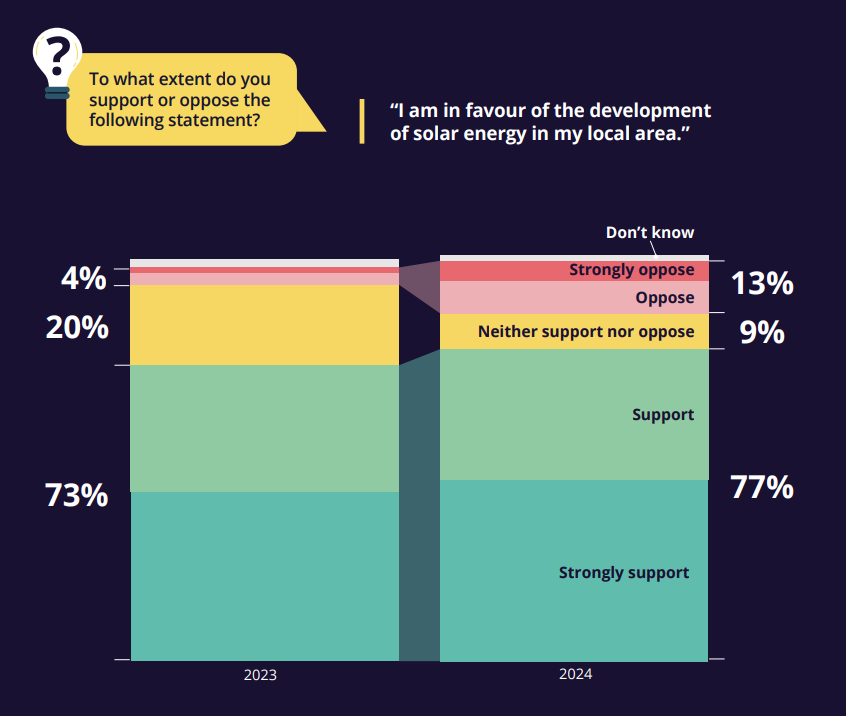PRASEG hosts briefing on “Public Attitudes to Onshore Renewables: A Polling Paradox?”
The Parliamentary Renewable and Sustainable Energy Group (PRASEG) held a well-attended briefing on Wednesday 7th May in Committee Room 20, exploring the apparent disconnect between national polling support for Net Zero and onshore renewables, and localised opposition that often hinders project deployment

Chaired by Wera Hobhouse MP, Vice Chair of PRASEG, the event brought together expert insight from Sam Cranston, Director of Energy Infrastructure at Copper Consultancy, and Nathan Bennett, Head of Strategic Communication at RenewableUK.
Sam Cranston presented findings from Copper Consultancy’s latest national polling see link HERE, which demonstrates consistent public support for the UK’s Net Zero target and renewable energy, while also highlighting regional and demographic nuances. He explored how public concerns and political narratives are shaping perceptions, particularly in light of the 2024 General Election and recent local elections.
A central theme of the discussion was the increasing politicisation of Net Zero, with speakers debating whether climate policy remains a “soft” electoral issue or is evolving into a more decisive political fault line - especially between urban and rural areas, and across age groups.
Nathan Bennett emphasised the role of effective public engagement and community benefit schemes in overcoming local opposition to infrastructure projects. He shared practical insights into which engagement strategies build trust and support at a local level, and urged Parliamentarians to play an active role in bridging the policy-to-project gap.
The session concluded with a call to action from all panellists, who each recommended a concrete step that MPs and policymakers could take to better align strong national support for Net Zero with local implementation. Suggestions included prioritising transparent communication, investing in community co-ownership models, and advocating for consistent, cross-party support for climate action.
This session provided a timely and nuanced reflection on public attitudes, voter behaviour, and the policy implications for accelerating the UK’s transition to a net zero future.
